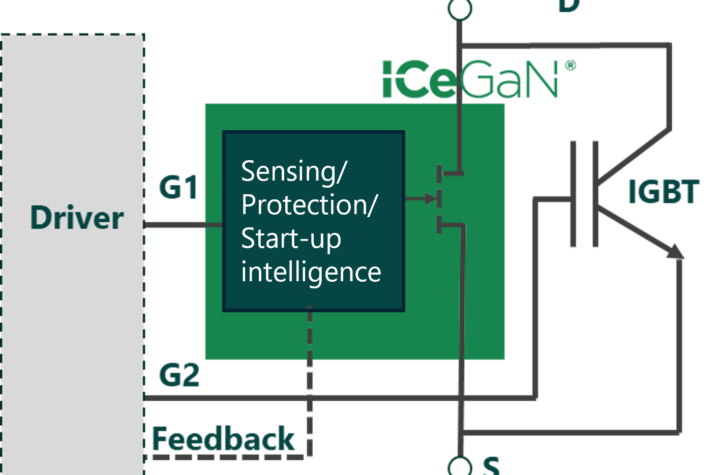
This year, the international electrical and electronic goods recycling sector comes to the “International Electronics Recycling Congress IERC 2015” in Salzburg suffering under the impact of adverse market conditions. For many years now, the IERC has ranked among the most prestigious industry meeting places for recycling experts worldwide, but seldom were market conditions as difficult for the sector as those currently witnessed.
“During the last ten years, e-waste recycling has experienced an unprecedented period of growth,” said Stefan-Georg Fuchs of Aurubis, the world’s largest copper recycler, at the press conference in Salzburg. Not only was there a sharp rise in the volumes of material collected, metal prices also soared to unimaginable heights. In the meantime, however, market conditions have changed drastically for the worse. Two years ago, metal prices already began declining. “Today, the prices of most non-ferrous and precious metals have returned to levels seen four or five years ago,” stated Fuchs, who is also a member of the International Steering Committee of the IERC.
To make matters worse, the overall value of the e-waste collected has also fallen. “Over the years, the amounts of copper and precious metals in computers and other IT devices have continually decreased,” explained Fuchs. The metal content in several types of device has fallen by over 50 per cent within only two model generations. At the same time, however, the costs of collection, treatment and eco-friendly recycling have all risen. Last year, a number of recycling companies either reported heavy losses or were forced to discontinue operations, says Fuchs.
In order to improve market conditions for recycling companies, among other things the Aurubis representative calls for greater efforts to raise general awareness regarding the importance of proper e-waste recycling, which applies to all countries worldwide, starting with the EU and USA, but it is also vital to get the message across to emerging economies such as India and Brazil. “An improvement of just a few per cent in the efficiency of collection systems can make the difference between survival and insolvency for a great many recycling companies,” Fuchs emphasised.
Jean Cox-Kearns, Director of Compliance at DELL Global Takeback, also stressed the importance of efficient collection systems. “Products are getting lighter, smaller and containing much less precious metals,” the representative of the US computer manufacturer said at the press conference. She added that products were being designed to last longer, which means the recycling industry needs to be innovative in order to continue being profitable. “For recyclers today, volume and mix is the key to profitability,” she said.
The DELL representative emphasised that it was their goal for producers to develop more closed loop recycling, feeding material from their products back into the manufacture of new ones. “For producers to be successful in this space, we need sustainability of supply of the right materials at the right price.” However, she also mentioned the significance of the ecological aspects of recycling, stating that input from outside and other people’s views would help in raising awareness. Jean Cox-Kearns thereby referred to the US American Ron Garan. This year, the former astronaut will receive the “Green Cowbell Award”, which the organisers of the IERC present every year to honour public figures for their special achievements. Jean Cox-Kearns stressed that people like Ron Garan could bring a dimension of experience and thoughts on how we impact our planet that assist in breakthrough thinking for the industry.
Ron Garan is a highly decorated fighter pilot, explorer and entrepreneur. During his active career as an astronaut he flew more than 71 million miles through space with the US Space Shuttle and the Russian Sojus spacecraft. He lived and worked a total of 178 days in space, which deeply influenced his attitude towards Earth. “As I looked back at our Earth from the orbital perspective, I saw a world where natural and man-made boundaries shrunk,” he said at the IERC press conference, describing his experience. “I saw a world becoming more and more interconnected and collaborative, a world where the exponential increase in technology was making the impossible possible on a daily basis. Thinking about the next 50 years, I saw a world where people and organisations set aside their differences and destructive competitive inclinations and work together towards their common goals.”
Since then, Ron Garan has been working hard every day to make his vision reality, and is involved in a number of environmental projects. Among others, Ron Garan is founder of the non-profit organisation “Manna Energy Foundation”, which is helping alleviate poverty through the provision of renewable energy, biogas reactors, high-efficiency cooking stoves, clean water and sanitation. At the press conference in Salzburg, he said he is firmly convinced that appropriately targeted social enterprise can solve many of the problems currently facing today’s world.
The astronaut is meanwhile the ninth person to receive the “Green Cowbell Award”, joining the ranks of numerous well-known personalities. Past winners include such distinguished names as EU parliamentarian Karl-Heinz Florenz, the founder of MBA Polymers Mike Biddle and Jim Puckett from the US environmental protection organisation Basel Action Network.





More Stories
Must-Have Car Protection Accessories For Every Season
CGD ANNOUNCES BREAKTHROUGH 100kW+ TECHNOLOGY ENABLING GaN TO ADDRESS $10B+ EV INVERTER MARKET
How AI-Powered License Plate Recognition is Transforming Vehicle Tracking & Security